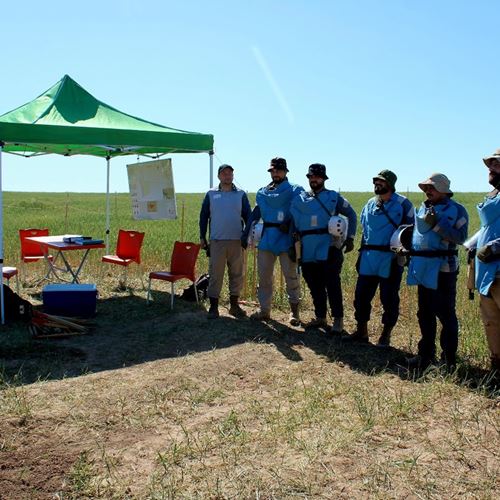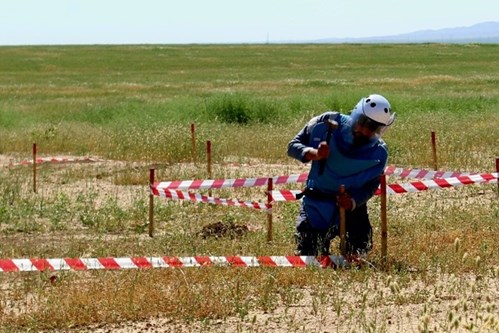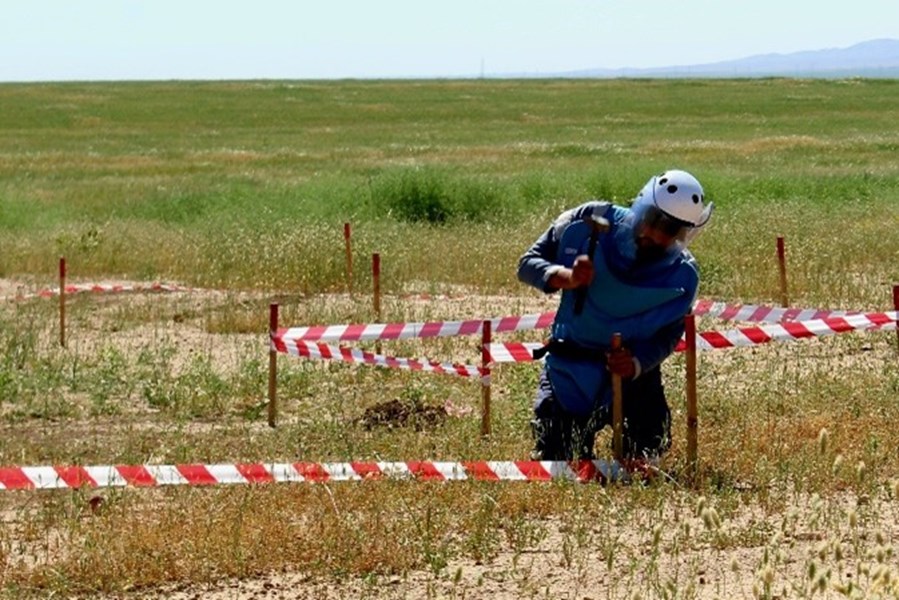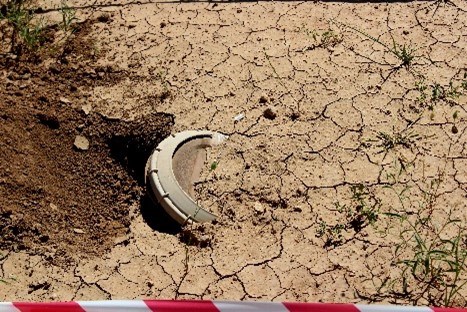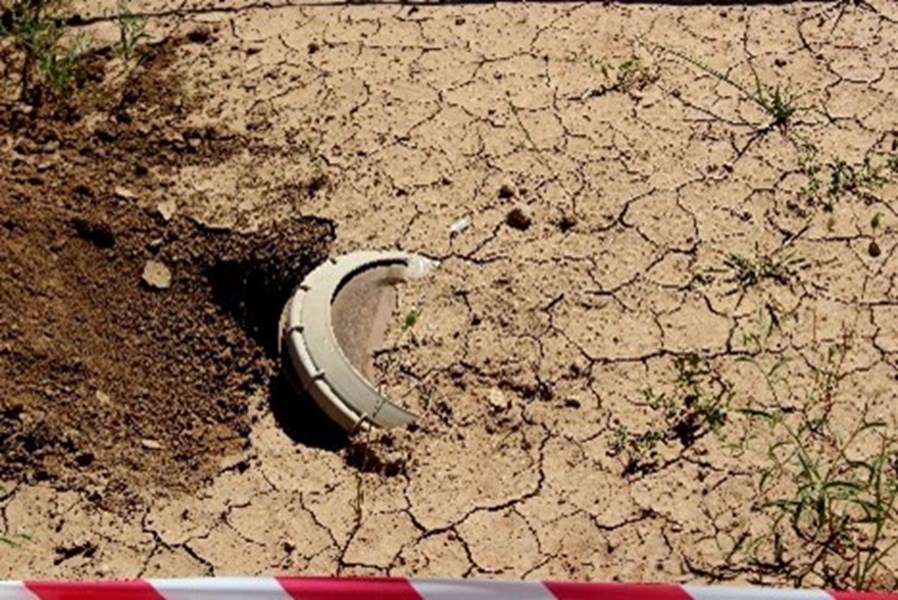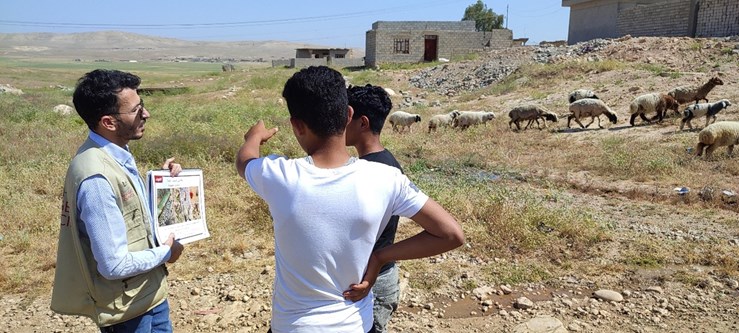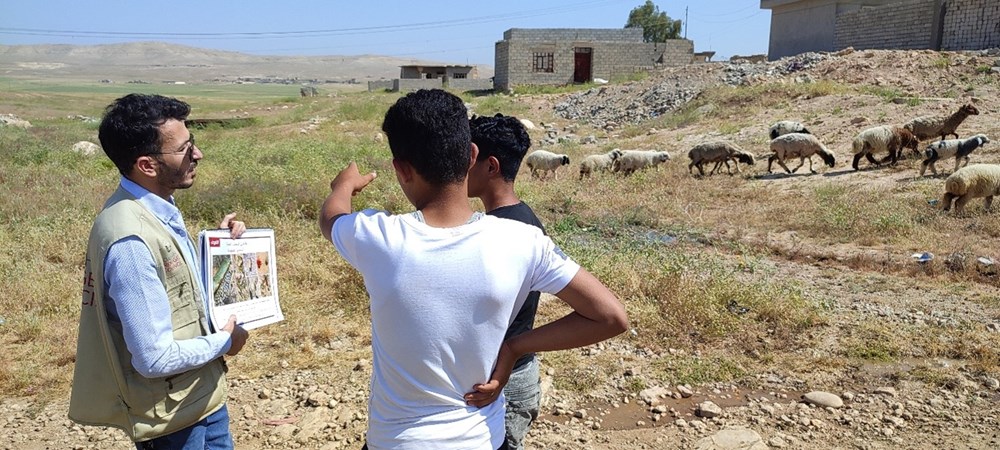Mrs. Laila* is a resident of Al-Halabiya Village, in Iraq’s Ninewa Governorate. For thirty years before the start of the conflict with the so-called Islamic State of Iraq and Syria (ISIS), she and her family lived a decent life cultivating wheat and barley on their land. Everything changed though when ISIS occupied her village in 2014. They were forced to flee, leaving their crops and property behind.
Mrs. Laila and her family lived in a camp for Internally Displaced People (IDP) for years, until in 2017 the defeat of ISIS in their area meant they felt ready to return home. Yet, when they returned to their village, they found their crops were burned and their land contaminated with Improvised Explosive Devices (IEDs). For years they lived in constant fear and poverty, the contamination preventing them from tending their lands – the family’s main source of income. Some organizations provided them with cash assistance, Mrs. Laila says, but it wasn't enough to support them for longer than two months.
In the face of these challenges, Mrs. Laila recalls how her son decided to take a risk and plow the land with a tractor, hoping to resume farming and help support the family. The risk was high, as he hit an IED, and suffered a terrible accident that destroyed the tractor and damaged his hearing. He was lucky to survive, she says. Especially as she also remembers the number of shepherds, farmers, and even an electrician, who lost their lives as a result of IEDs that ISIS planted in and around the village.
After hearing Mrs. Laila's story, and in coordination with Directorate for Mine Action (DMA), the DRC’s Humanitarian Mine Action Team decided to immediately start clearance operations in Al-Halabiya Village, as part of its ongoing interventions in Ninewa funded by Swedish International Development Corporation (SIDA). Clearance began in January 2023, and is ongoing until June 2023. So far, the team has cleared around half of the contaminated area, which has a total size of 590,312 square meters – equal to the size of around 83 football fields. Due to reduction in humanitarian funding for mine clearance in Iraq in 2023, the whole area around the village unfortunately will not be cleared. This is a similar narrative in many areas across the country as funding support has reduced and government investment remains limited – yet Iraq remains one of the most contaminated countries in the world, with over two billion square meters of hazardous areas.
Mrs. Laila’s story shows how landmines and explosive ordnance can not only kill and injure innocent people, but also prevent them from accessing their livelihoods, basic services, and development opportunities. This can create significant barriers to re-integration for families like Mrs. Laila’s who are returning after years of displacement. That is why DRC’s clearance work is so important and urgent. By clearing landmines and IEDs, DRC is helping to create a safe environment in which people like Mrs. Laila can live without fear and rebuild their lives with dignity.
In addition to mine clearance activities, DRC also conducts Explosive Ordnance Risk Education (EORE), Community Liaison and Non-Technical Survey – a preliminary survey to assess risks of hazards in an area – in Al-Halabiya Village and other surrounding villages. These activities aim to raise awareness of the dangers of landmines and explosives, and to encourage people to share information that can help DRC identify and clear contaminated land. They also allow us to communicate with communities and inform them of the progress and results of DRC’s demining work. Through these activities, we seek to build trust and cooperation with the people we serve, and to ensure that our work responds to their needs and priorities.
*Name changed for anonymity
